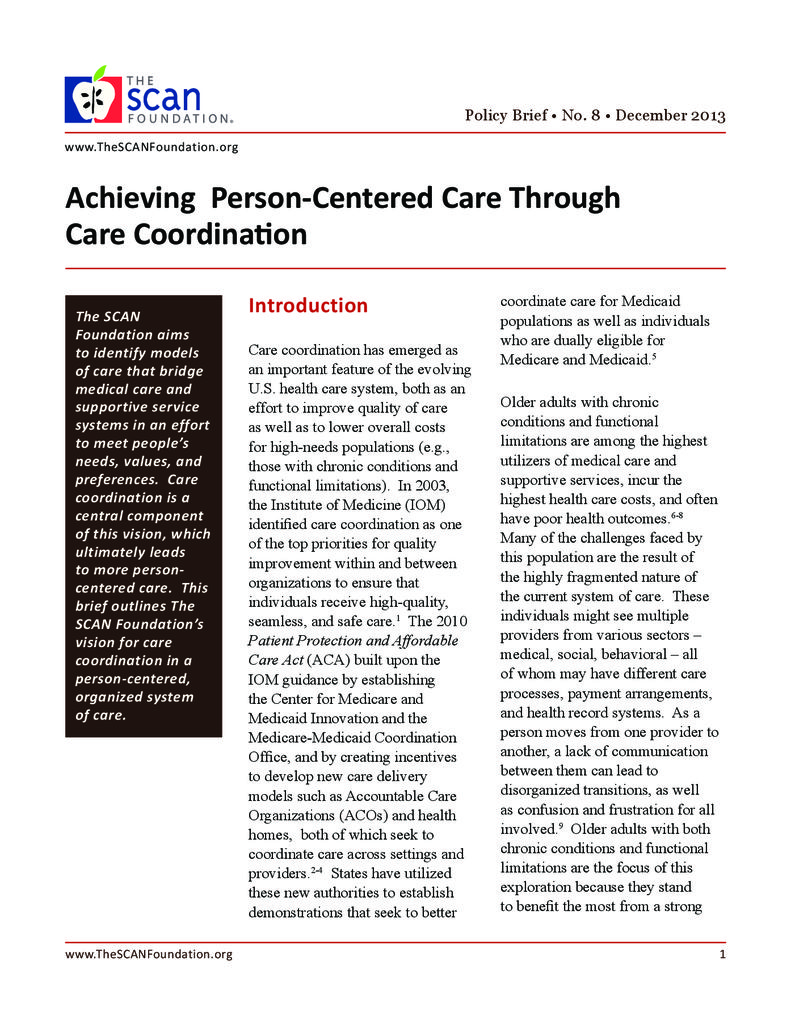Achieving Person-Centered Care Through Care Coordination
summary
The SCAN Foundation aims to identify models of care that bridge medical care and supportive service systems in an effort to meet people’s needs, values, and preferences. Care coordination is a central component of this vision, which ultimately leads to more person-centered care. This brief outlines The SCAN Foundation’s vision for care coordination in a person-centered, organized system.
Date Updated: 12/04/2013Care coordination has emerged as an important feature of the evolving U.S. health care system, both as an effort to improve quality of care as well as to lower overall costs for high-needs populations (e.g., those with chronic conditions and functional limitations). In 2003, the Institute of Medicine (IOM) identified care coordination as one of the top priorities for quality improvement within and between organizations to ensure that individuals receive high-quality, seamless, and safe care…
Download the publication for all visuals and complete references.
Continue Reading
This policy brief provides an introduction to The SCAN Foundation’s CLASS Technical Assistance Brief Series, which explores many of the critical issues to be considered for successfully implementing CLASS.
This policy brief describes the broad needs of individuals with disability and the wide range of supportive and environmental solutions that can allow for the most independent living possible. It suggests how findings on social and environmental supports for individuals with disability can inform implementation of CLASS.
This policy brief provides background on the historical development of benefit eligibility triggers in the private long-term care insurance market. Understanding how these triggers came into being can provide important information to those charged with implementing the CLASS Plan.


